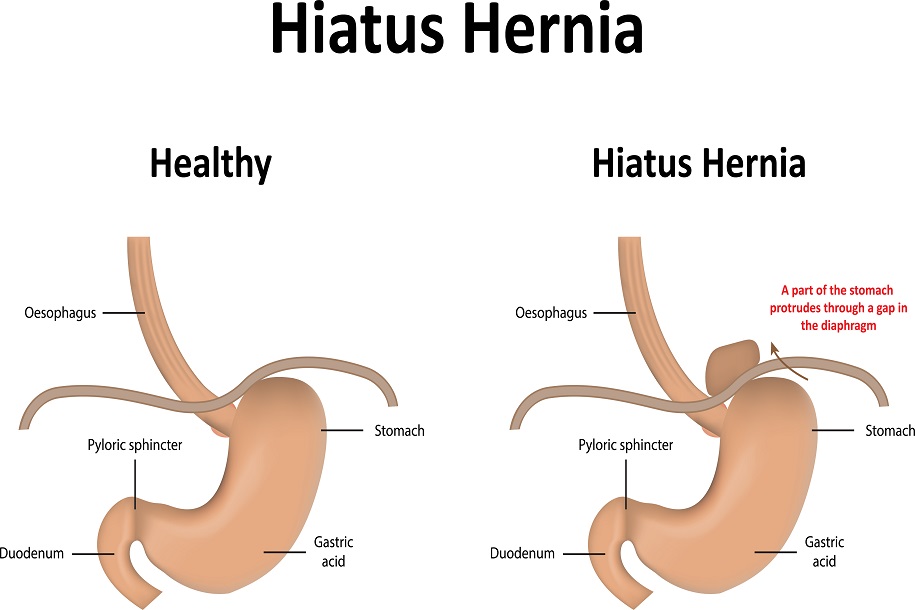
May 3, 2021
According to Hopkins Medicine, Hiatal Hernias are one of the most common types of hernias caused by pregnancy and occur in 15 to 20 percent of expecting women. A Hiatal Hernia occurs when a part of the stomach pushes up into the muscles and tissue of the diaphragm through an opening known as an esophageal hiatus, a pathway of the esophagus in which food travels to the stomach. Most of the time, the symptoms of Hiatal Hernias may be treated with medication, but in some cases, the symptoms may worsen and require Hiatal Hernia surgery. Continuing on the topic, in this blog post, we discuss four lesser-known facts about Hiatal Hernia. Read on!
1. Hiatal Hernia is Common
According to statistics from BCM.edu, 60 percent of adults may suffer from some degree of Hiatal Hernia by the age of 60. Most of the time, Hiatal Hernias do not show any severe symptoms and you may be walking around without any idea that you have a hernia. In some cases, it can be painful and cause severe symptoms overtime that may force individuals to seek medical treatment or even Hiatal Hernia surgery.
2. Symptoms can Vary From Person to Person
The symptoms of Hiatal Hernias range from nothing severe or unusual to trouble swallowing and severe acid reflux. Sometimes, individuals with a Hiatal Hernia may start feeling full quickly and begin taking smaller meals. Others may experience shortness of breath and pain/discomfort in the diaphragm and belly. People with large Hiatal Hernias may also develop iron deficiencies that can further lead to many health complications.
3. It is Genetic
Many experts say that people with unusually large hiatus or loose connective tissue have more chances of developing Hiatal Hernias. Besides, children of people with loose connective tissue have more chances of getting hiatal hernia. In addition, lifestyle factors such as smoking, obesity, and age can increase the chances of getting Hiatal Hernia.
4. You may Have to Undergo Surgery
Sometimes, general surgeons recommend minimally invasive surgery to treat a Hiatal Hernia. Hiatal Hernia surgery involves tiny incisions that reduce the risk of heavy blood loss and encourage faster recovery. The procedure is done to reduce the likelihood of complications that may occur in the future such as an abdominal wall hernia. If the hernia is large and has affected multiple organs, doctors may recommend open surgery.
Wrap Up
Although Hiatal Hernia is common, it may cause many severe complications if not treated properly. For this reason, patients must seek help from an experienced surgeon who can treat Hiatal Hernia with modern and innovative techniques that help prevent any recurrence and the formation of an abdominal wall hernia. To know more about Hiatal Hernia Surgery in Dallas, Texas, look no further than DFW Bariatrics and General Surgery’. Our general surgeons can help you manage Hiatal Hernia and any related complications. Contact the Minimally Invasive Surgical Associates at 469 620 0222 or send us a text at 469 620 8055. You can also email [email protected].
